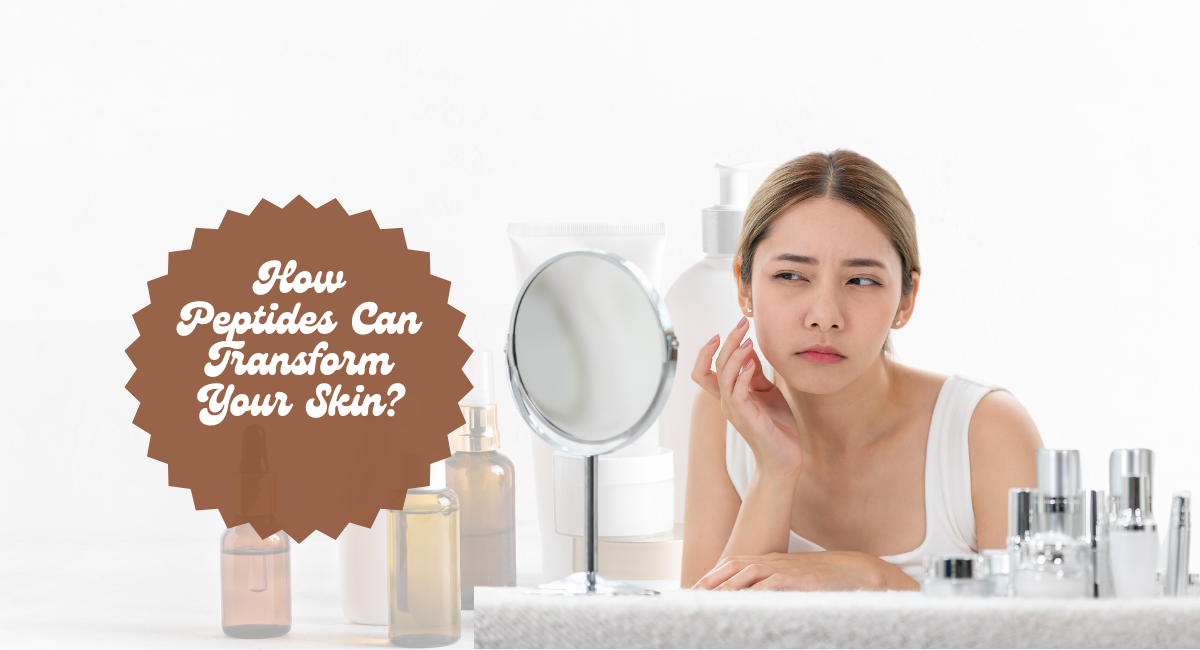Peptides have become a skincare buzzword, celebrated for their anti-aging properties and ability to improve skin texture and hydration.But what are peptides, and how do they help your skin? Here’s a Article from leading dermatologists on understanding peptides, their benefits, and how to incorporate them into your skincare routine.
What Are Peptides And How Do They Benefit The Skin?
To grasp the significance of peptides, it’s essential to understand amino acids first. “Peptides are chains of amino acids, which are the fundamental building blocks of proteins like collagen in the skin,” explains Dr.
Whitney Bowe, a prominent New York City dermatologist. “Without these proteins, we’d experience wrinkles, brittle nails, and dry, breakable hair.”
Dr. Deanne Mraz Robinson, a partner at Modern Dermatology in Westport, CT, adds that peptides are crucial for synthesizing collagen and elastin fibers, which contribute to skin firmness and elasticity.
“Peptides are present in every cell and act as biological messengers, influencing various bodily functions such as enzyme production, hormone regulation, and energy metabolism,” says Dr. Robinson.
How Peptides Work In Skincare?
Despite their natural presence in the body, peptide levels decline with age, affecting collagen production and skin communication. “We lose about 1% of our collagen each year after age 30,” notes Dr. Robinson. “This slow-down in skin functions makes peptide application essential.”
Read More : 12 Essential Makeup Tips For Women Over 50
Dr. Bowe explains that peptides in skincare products act as signals to your skin. “When applied, they mimic the signals your body would produce in response to injury. This encourages your skin to boost collagen production and improve hydration, making your skin look plumper and more resilient.”
Types of Peptides And Their Functions
Not all peptides are created equal. Dermatologists identify several types with unique benefits:
- Neurotransmitter Peptides: These are found in products like Botox and topical treatments such as Argireline. They prevent the release of chemicals that make muscles tighten, which helps reduce wrinkles and lines on the skin.
- Signal Peptides: Known as palmitoyl pentapeptides, these are common in skincare and stimulate collagen and elastin production, leading to firmer, fuller skin.
- Carrier Peptides: These peptides deliver essential trace elements like copper and magnesium to the skin. Copper peptides, for instance, enhance collagen production and improve skin elasticity while reducing signs of photoaging.
- Enzyme-Inhibitor Peptides: These peptides slow down the natural breakdown of collagen. Derived from rice proteins and soy, they help preserve collagen and prevent pigmentation issues.
Read More : How To Transition Your Skincare Routine From Summer to Fall?
How To Incorporate Peptides into Your Skincare Routine?
To maximize the benefits of peptides, focus on incorporating them into your skincare routine effectively:
- Choose the Right Product: Dermatologists recommend using peptides in products that remain on the skin longer, such as moisturizers, serums, and eye creams. Avoid products like cleansers that are rinsed off.
- Look for Effective Formulations: Peptide formulations’ stability and penetration ability are crucial. Dr. Bowe suggests consulting with a dermatologist to find products with stable peptides that effectively penetrate the skin barrier.
- Combine with Other Ingredients: Opt for products with additional beneficial ingredients like niacinamide, vitamin C, antioxidants, and peptides. These combinations can enhance overall skin health and improve results.
- Application Tips: Apply peptide-infused products to clean skin twice daily. Ensure you use them under makeup and sunscreen to protect your skin from UV damage.
The Bottom Line
Incorporating peptides into your skincare routine can significantly improve skin texture, firmness, and hydration. Choosing the right type of peptide and integrating it effectively into your routine is key to achieving the best results.
Besides topical applications, collagen-rich foods and supplements can further support skin health. Always consult a dermatologist to tailor your skincare routine to your specific needs and ensure you get the most out of your peptide products.

